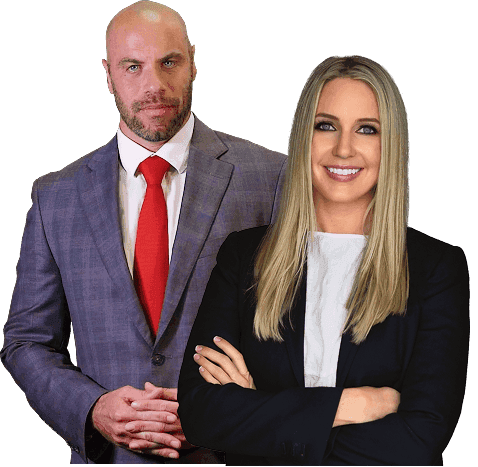How to File a Personal Injury Lawsuit in Florida
Fight for Maximum Compensation After an Accident
Filing a personal injury lawsuit in Miami can be overwhelming, but it’s often necessary to recover the compensation you need after an accident like a car accident, truck accident, slip and fall, or wrongful death. Insurance companies often deny claims, dispute liability, or offer low settlements, leaving victims with uncovered medical expenses, lost income, and emotional trauma. A lawsuit allows you to demand the full compensation you deserve and hold the negligent party accountable.
When someone else’s negligence causes harm, the aftermath can leave victims facing financial stress, medical expenses, and emotional trauma. In Miami, Romanow Law Group fights for injured victims of Florida accidents and their families.
Led by our experienced Miami personal injury lawyers, our team investigates your accident, gathers evidence, calculates your damages, and negotiates aggressively with insurers – or takes your case to court. Let us handle the legal complexities while you focus on healing. Contact us today for a free consultation to learn how we can help.
FAQs About Florida Personal Injury Claims
- What is a personal injury lawsuit, and how does it differ from an insurance claim?
- When should I file a lawsuit instead of just pursuing an insurance claim?
- Who can file a personal injury lawsuit in Miami?
- How long do I have to file a personal injury lawsuit in Florida, and what factors can affect this deadline?
- What are the steps to file a personal injury lawsuit in Miami?
- What damages can I recover in a Miami personal injury lawsuit?
- What is a duty of care, and how does it apply to personal injury lawsuits?
- What is comparative negligence, and how does it affect my personal injury lawsuit in Florida?
- How long does a personal injury lawsuit typically take to resolve in Miami?
- How are personal injury lawyers paid in Miami?
- Why is it necessary to hire a lawyer for a personal injury lawsuit in Miami?
- What happens if I don’t file a lawsuit after an accident caused by negligence?
What is a personal injury lawsuit, and how does it differ from an insurance claim?
 When someone’s negligence causes an accident, injured victims often pursue compensation. Understanding the difference between a lawsuit and an insurance claim is crucial for determining the best way to recover damages. While both address financial losses, they serve different purposes and involve distinct processes.
When someone’s negligence causes an accident, injured victims often pursue compensation. Understanding the difference between a lawsuit and an insurance claim is crucial for determining the best way to recover damages. While both address financial losses, they serve different purposes and involve distinct processes.
Insurance claim
- A request made to the at-fault party’s insurance company.
- Typically focuses on covering medical bills, property damage, or lost wages.
- Often resolved through negotiation without involving the courts.
Personal injury lawsuit
- A formal legal action filed in court against the negligent party.
- Allows for recovery of broader damages, including pain and suffering.
- Necessary when an insurance claim is denied or the settlement offered is insufficient.
Filing a lawsuit can be more complex, but it often ensures fair compensation. An experienced lawyer can guide you in deciding which option is right for your case.
When should I file a lawsuit instead of just pursuing an insurance claim?
While insurance claims are often the first step after an accident, there are situations where filing a lawsuit becomes necessary. Knowing when to take this step can make a significant difference in your recovery.
- The insurance company denies your claim: If liability is disputed, insurers may deny your claim altogether.
- The settlement offer is too low: Insurance companies often undervalue claims, leaving you with unpaid expenses.
- Your damages exceed policy limits: When your losses surpass the at-fault party’s insurance coverage, additional legal action may be required.
- The at-fault party has no insurance: A lawsuit may be your only option for recovering damages directly from the negligent party.
Filing a lawsuit demonstrates that you are serious about holding the negligent party accountable. Consulting with a lawyer ensures your case is strong and your rights are protected.
Who can file a personal injury lawsuit in Miami?
Not everyone affected by an accident can file a personal injury lawsuit. Understanding eligibility helps determine whether legal action is an option.
- Injured victims: Individuals injured due to someone else’s negligence.
- Parents or guardians: On behalf of minors injured in an accident.
- Personal representatives: For wrongful death cases, the estate’s personal representative can file on behalf of surviving family members.
If you’re unsure about your eligibility, a personal injury lawyer can assess your case and provide clarity on your legal options.
How long do I have to file a personal injury lawsuit in Florida, and what factors can affect this deadline?
In Florida, you typically have two years from the date of the accident to file a personal injury lawsuit. For wrongful death cases, the deadline is two years. Factors like delayed discovery of injuries or determining who is liable can affect this timeline. Consulting with a lawyer promptly ensures you don’t miss critical deadlines.
What are the steps to file a personal injury lawsuit in Miami?
Filing a personal injury lawsuit involves several key steps. While it may seem overwhelming, having a clear roadmap can make the process manageable.
- Consult with a lawyer: A lawyer evaluates your case and explains your options.
- File a complaint: The lawsuit begins when your attorney files a legal document outlining your claims in court.
- Serve the defendant: The defendant is formally notified of the lawsuit.
- Discovery phase: Both sides exchange evidence and build their cases.
- Negotiations or mediation: Most cases are settled before trial through negotiation or alternative dispute resolution.
- Trial (if necessary): If no settlement is reached, your case goes to court, where a judge or jury decides the outcome.
- Judgment: If you win, the court issues a judgment specifying the damages awarded and what the defendant owes you.
- Appeals: Either party can appeal the decision, which may extend the process but could be necessary for fairness.
Having a lawyer ensures every step is handled properly, increasing the likelihood of a successful outcome.
What damages can I recover in a Miami personal injury lawsuit?
A personal injury lawsuit seeks to compensate you for the harm caused by someone else’s negligence. Understanding the types of damages available can clarify what you’re entitled to recover.
- Economic damages: Medical expenses, lost wages, rehabilitation costs, and property damage.
- Non-economic damages: Pain and suffering, emotional distress, and loss of enjoyment of life.
- Punitive damages: In rare cases of gross negligence, additional damages may be awarded to punish the at-fault party.
Calculating damages can be complex, but a lawyer ensures you pursue the full amount you deserve. Let an experienced attorney advocate for your recovery.
What is a duty of care, and how does it apply to personal injury lawsuits?
A duty of care is a legal obligation requiring individuals or entities to act reasonably to prevent harm to others. For example, drivers must follow traffic laws to avoid accidents. In personal injury lawsuits, proving that the defendant breached this duty is key to establishing negligence.
What is comparative negligence, and how does it affect my personal injury lawsuit in Florida?
Florida follows a modified comparative negligence rule, which means your compensation can be reduced if you are partially at fault. For example, if you are found 20 percent responsible for an accident, your damages will be reduced by 20 percent. However, as long as you are less than 50 percent at fault, you can still recover compensation.
How long does a personal injury lawsuit typically take to resolve in Miami?
The timeline for a personal injury lawsuit in Miami can vary widely, often taking several months to a few years. Factors like the complexity of the case, willingness to settle, and court scheduling can impact the duration. An experienced lawyer can help streamline the process and advocate for timely resolution.
How are personal injury lawyers paid in Miami?
Personal injury lawyers in Miami are typically paid on a contingency fee basis, meaning they only get paid if you win your case. Their fee is usually a percentage of the settlement or court award. This arrangement ensures that legal representation is accessible without upfront costs.
Why is it necessary to hire a lawyer for a personal injury lawsuit in Miami?
Navigating a personal injury lawsuit without legal expertise can jeopardize your case. Lawyers provide critical advantages that improve your chances of success.
- Legal knowledge: Attorneys understand Florida laws and can build a strong case.
- Evidence gathering: Lawyers know how to collect and preserve evidence to prove negligence.
- Negotiation skills: Attorneys handle discussions with insurance companies, ensuring you aren’t taken advantage of.
- Representation in court: If your case goes to trial, a lawyer advocates for you every step of the way.
Without a lawyer, you risk settling for less than you deserve. Hiring experienced legal representation helps you secure the compensation you need.
What happens if I don’t file a lawsuit after an accident caused by negligence?
Failing to file a lawsuit can have serious consequences for your financial and emotional recovery.
- Unpaid medical bills: You may be left responsible for the costs of your treatment.
- Lost income: Without compensation, lost wages from time off work can create financial hardship.
- No accountability: The negligent party may face no consequences, potentially endangering others.
Filing a lawsuit ensures your losses are addressed and holds the responsible party accountable. A lawyer can help you take action before it’s too late.
Contact a personal injury lawyer in Miami today
If you’ve been injured in a Miami accident or lost a loved one due to negligence, don’t navigate the legal process alone. Filing a personal injury lawsuit can be complex, but with the right lawyer, it doesn’t have to be overwhelming. Based in Miami, the experienced team at Romanow Law Group is here to fight for the compensation you deserve, allowing you to focus on healing. Contact us today for a free consultation and take the first step toward justice.

